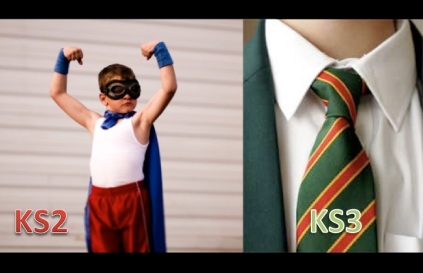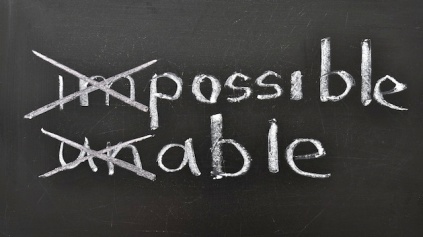I can’t be certain but I’m pretty sure the dance move referenced in the title of this post is a familiar one to most. If you’re a teacher or connected to an educational establishment of some sort, no doubt this piece of simple choreography will have featured at a number of work Christmas parties, or, if you have a quick rummage through some archived home video footage, I’m sure it would appear in the background somewhere.
aa aa
aa
For the rigid dads, the well-rehearsed side-steppers or the uncomfortable public movers, it’s great. It offers a welcome blast of structure in the middle of a music track in which, for some, a whole three and a half minutes of freestyle is far too daunting. However, for the more advanced, the rhythm lovers and the naturally gifted movers, this prescriptive routine is a cumbersome straight jacket. The expectation to follow somebody else’s stiff series of lifeless arm gestures leaves them feeling confined. The beautifully-liberated butterfly that once carelessly flitted across the dance floor quickly becomes a caged creature, restricted by bars and limited by reduced expectations.
aa
While only a metaphor, this is the best way I can describe my lingering concern for the transition between KS2 and KS3. In a previous post (here), I described my career change from primary to secondary teaching. I don’t regret it for a minute. I loved many things about working with younger students but, for me personally, I get great satisfaction out of my role as Literacy Leader, working closely with slightly older students and staff to raise literacy levels across the school.
aa
Having taught at the upper end of KS2, preparing classes of Year 6 students for SATs and subsequently the impending school transfer, but also welcoming in new classes of Year 7s the other side of the transition, I’ve seen it from both sides. I’m privileged to have experienced this ‘coming of age’ journey as an observer, recognising those students that would once consider themselves the ‘big fish’ in their comfortable bubble of primary school familiarity, inevitably shrink into a new ‘little fish’ identity, in what can often feel like a strange new world of awkwardness and unfamiliarity.
aa
 aa
aa
I’m keen to point out here that I’ve little doubt there are many schools, like my own, that have great transition programmes in place for new students. I know for sure that where I teach, we have a number of different pathways for new starters and do our best to draw the most useful information out of our baseline testing and feedback from feeder primary schools in order to best support our students. It is crucial to build a strong foundation of pastoral support early on to minimise turbulence in this delicate transfer.
aa
However, I do feel compelled to share a quick reflection.
aa
I sometimes wonder if there’s a bizarre warp-like divide between primary and secondary. While we claim to understand bits about each other, in reality there is very little crossover between the two. And, in the profession we’re in working with vulnerable young people, I’m not sure that the norm of minimal overlap is the best way forward. Both educationally and socially, I’m convinced that when students reach the end of Year 6, they are incredibly capable of so much. And yet, by the time they reach secondary, they appear almost inept at packing their own bag or chewing their own food. It seems to me that, in addition to the natural 6-week summer ‘dip’ in educational performance, when they arrive at Year 7 (at least initially), they can perhaps sometimes feel confined by this sense of a cage or by the ‘cardboard box-inducing’ expectations placed upon them. The fact they are now the ‘little ones’ again after a year of feeling like they ruled the school can lead students towards conforming to this ‘brand new’ label that is sometimes prescribed.
aa
I’m extremely pleased that as part of an INSET day approaching, my school Leadership Team have decided to send staff out into local primary schools, to get an idea of the way they run and the pedagogy that is common across them. I firmly believe this is going to have some really positive effects and am excited by the potential outcomes.
aa
As a keen advocate of the much-discussed concept of a ‘Growth Mindset’ by Carol Dweck (see here), explored in some fantastic blogs highlighted below, I am of the belief that the education experience should not be limited by our teacher-led expectations. Over-assessment and repeated reference to predicted grades are both common causes for a reduced interest in learning and result in either a strained, a half-hearted or even reluctant push for excellence. Joe Kirby quotes Dylan Wiliam, reminding us of the unhealthy relationship we can develop with levels (and thus model to our impressionable students), in his excellent post on how assessment is shackling schools here. This current educational debate is often raised in relation to upper KS3/KS4 students who are nearing GCSEs and beyond.
aa
 aa
aa
However, my experience of transition leads me to hope otherwise. This extremely powerful concept of a ‘growth mindset’ over a fixed one asserts that constant reference to target grades and fixed expectations is not constructive in developing a student’s belief that they can always reach greater success. This freedom-giving approach to learning is one that needs to be taught and nurtured from early on in the educational journey. In my current role where I am – based in the SEN department, I would hope that mainstream teachers at all levels, would treat our students who possess real learning obstacles in just the same way as their peers, encouraging them to realise that ‘the possibilities are endless’ for them too (to steal a well-known publicity slogan). And it’s up to us, as facilitators of learning, to establish a comfortable learning environment that offers appropriate scaffolding for ALL students to achieve their full potential.
To me, the teacher who can model a successful transition between KS2 and KS3 is one that has mastered the sensitive balance – not only in establishing a comfortable environment by recognising the real needs of these ‘little fish’ in their big new tank, but also recognising the potential they have to be the ‘big fish’ again very quickly, given the right conditions.
aa
Alex Quigley, in his brilliant post on “‘The Butterfly Effect’ in Schools” references Ron Berger’s ‘The Ethic of Excellence’ and asks:
“What conditions do I need to create for ‘butterflies’ to flourish?”
This is a healthy question we need to be asking ourselves regularly – and responding to – in order to minimise the possibility of trapping students into that metaphorical cardboard box. It is possible, in my opinion, to lift the lid on learning and success by developing a culture across the entire school that subscribes to the notion of limitless expectations.




